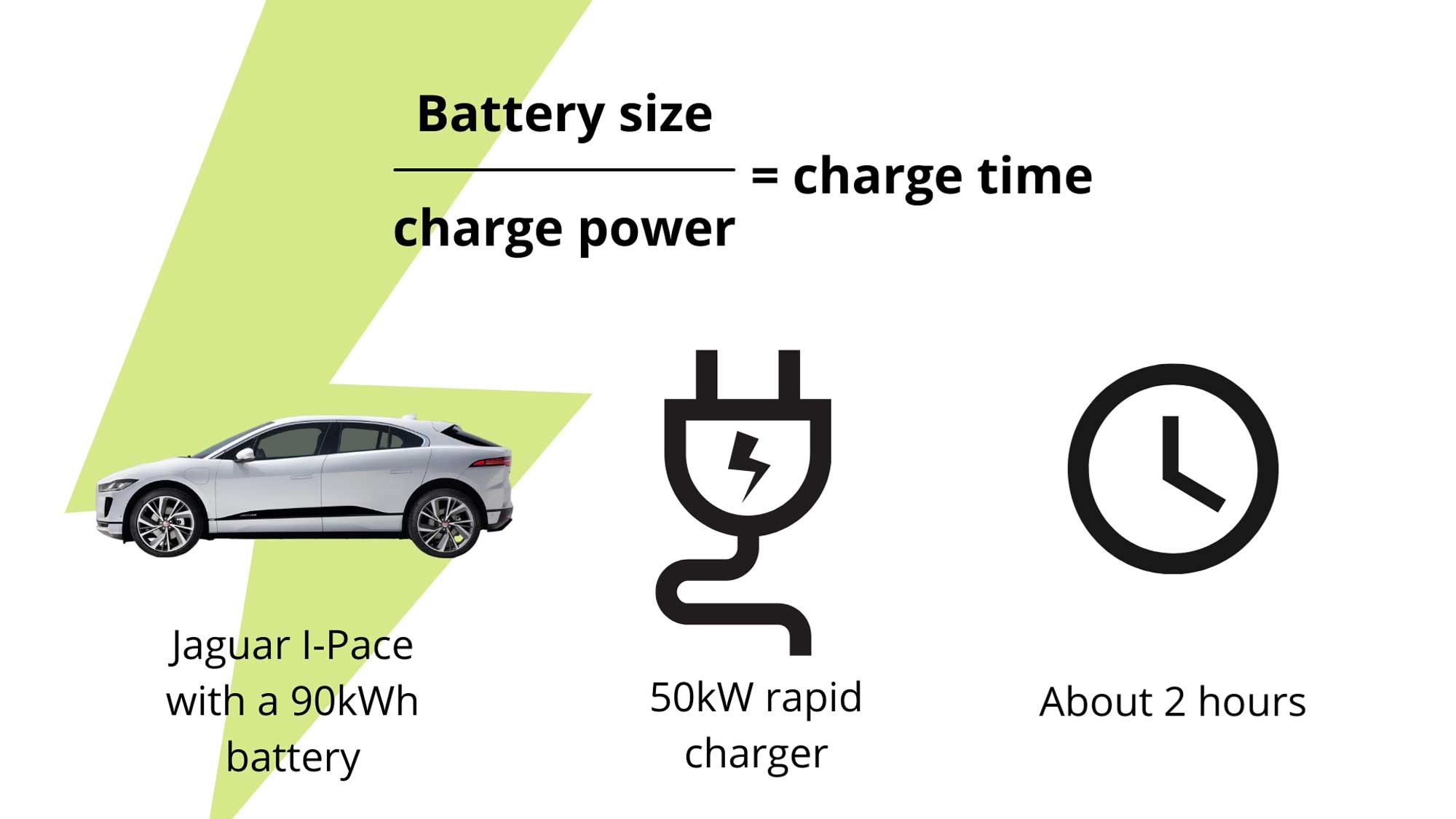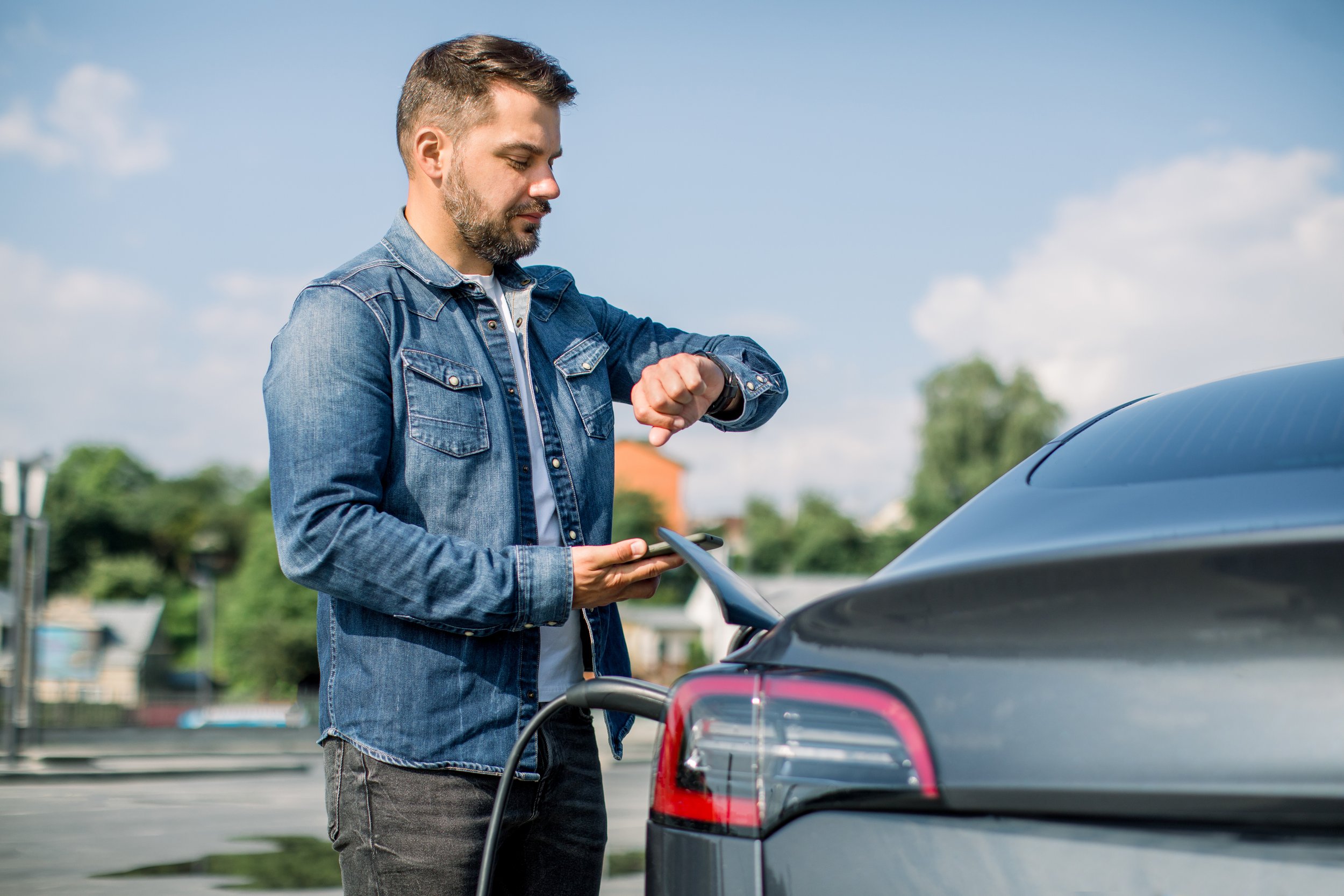Charging an electric car typically takes 4 to 8 hours, depending on the battery size and charger speed. Electric cars are becoming increasingly popular due to their environmental benefits and lower operating costs.
As more people make the switch to electric vehicles, understanding the charging process becomes essential. The time it takes to charge an electric car can vary based on factors such as the vehicle’s battery capacity, the type of charger used, and the charging infrastructure available.
In this blog post, we will explore the different factors that influence the charging time of electric cars and provide tips on how to charge your electric vehicle efficiently.
Contents
How Long Does It Take to Charge an Electric Car
Charging an electric car depends on several factors, including the type of charger and the vehicle’s battery size. Generally, it takes around 4-8 hours to fully charge an electric car using a level 2 charger, while a level 3 fast charger can provide an 80% charge in as little as 30 minutes.
Charging an electric car is a key aspect of owning one, and understanding the basics can help drivers make informed decisions. Let’s explore the different aspects of electric car charging, including the options for charging at home versus using public stations and the various levels of charging speeds.
Charging at Home vs. Public Stations
When it comes to charging an electric car, owners have the option to either charge at home or use public charging stations. Charging at home offers the convenience of plugging in the car overnight and waking up to a fully charged battery. On the other hand, public stations provide flexibility for on-the-go charging, ideal for longer trips or when access to home charging is limited.
Levels of Charging: From Slow to Fast
Electric car charging levels are categorized based on the speed at which they charge the vehicle. These levels include:
1. Level 1 (120 volts): This is the slowest charging option, typically providing around 4-5 miles of range per hour of charging.
2. Level 2 (240 volts): Offering a faster charging rate, level 2 chargers can provide approximately 10-20 miles of range per hour, making them suitable for home charging or public stations.
3. Level 3 (DC Fast Charging): Also known as DC fast charging, this level offers rapid charging, providing up to 80% of the battery’s capacity in as little as 30 minutes, making it ideal for long-distance travel and quick top-ups.
Understanding these charging basics can help electric car owners make informed decisions about their charging needs, whether it’s for daily commuting or longer journeys.

Credit: www.jdpower.com
Factors Affecting Charging Time
Electric vehicles (EVs) are becoming increasingly popular due to their eco-friendly nature and low operating costs. However, one of the main concerns for prospective buyers is how long it takes to charge an EV.
The charging time can vary depending on several factors, including the battery capacity, charger compatibility, and power output. In this post, we will discuss these factors in detail to help you better understand how long it takes to charge an electric car.
Battery Capacity And State Of Charge
The battery capacity and state of charge are two critical factors that affect the charging time of an electric car. The battery capacity refers to the amount of energy that the battery can store, while the state of charge is the amount of energy that is currently available in the battery.
The larger the battery capacity, the longer it will take to charge the battery fully. Similarly, the lower the state of charge, the longer it will take to charge the battery.
For example, if you have a 60 kWh battery and it is completely discharged, it will take longer to charge than a 40 kWh battery that is only partially discharged. Additionally, the charging time can be affected by the type of battery used in the car. Lithium-ion batteries, which are commonly used in EVs, can charge faster than other battery types.
Charger Compatibility And Power Output
The charger compatibility and power output are other critical factors that affect the charging time of an electric car. Not all chargers are compatible with all EV models, and not all chargers have the same power output. The power output of a charger is measured in kilowatts (kW) and determines how quickly the battery can be charged.
For example, a 7 kW charger will take longer to charge an EV than a 22 kW charger. However, it’s important to note that not all EVs can handle the higher power output of a 22 kW charger. Therefore, it’s essential to check your car’s specifications and ensure that the charger you’re using is compatible with your EV.
In addition to charger compatibility and power output, the charging method used can also affect the charging time. For example, using a DC fast charger can charge an EV much faster than using a standard AC charger. However, not all EVs are compatible with DC fast chargers, so it’s crucial to check your car’s specifications before using this method.
The charging time of an electric car can vary depending on several factors, including battery capacity, state of charge, charger compatibility, power output, and charging method. Therefore, it’s essential to understand these factors and consider them when choosing a charging method for your EV. By doing so, you can ensure that your car is charged efficiently and effectively, allowing you to enjoy the benefits of electric driving.
Real-world Charging Scenarios
When it comes to charging an electric car, understanding the real-world charging scenarios can help you plan your charging routine effectively. The time it takes to charge an electric car can vary depending on various factors such as the vehicle’s battery capacity, charging speed, and the charging infrastructure available.
Average Times For Popular Electric Vehicles
If you are wondering how long it takes to charge popular electric vehicles, here are some average charging times:
| Electric Vehicle | Average Charging Time |
|---|---|
| Tesla Model S | 8-10 hours |
| Nissan Leaf | 4-8 hours |
| Chevrolet Bolt EV | 9-11 hours |
| BMW i3 | 3-4 hours |
These times are approximate and can vary based on factors such as the battery’s state of charge, available charging power, and the charging method used.
Maximizing Efficiency In Charging Routines
To make the most of your charging routines and minimize charging time, here are a few tips to maximize efficiency:
- Utilize fast charging stations when available to reduce charging time significantly.
- Consider installing a level 2 home charging station for faster charging in the convenience of your own home.
- Plan your charging sessions during off-peak hours when electricity rates are typically lower.
- Monitor your vehicle’s charging progress through mobile apps or vehicle dashboards to ensure efficient charging.
- Precondition your electric car’s cabin temperature while connected to a charger to reduce the need for battery power during the drive.
By following these practices, you can optimize your charging routine and ensure that your electric car is ready to hit the road whenever you need it.

Credit: www.carmagazine.co.uk
Frequently Asked Questions
Here are some FAQs about electric car charging –
How Long Does It Take To Charge An Electric Car At A Station?
Charging times for electric cars at stations vary, typically ranging from 30 minutes to 12 hours.
How Long Does It Take To Charge An Electric Car On A Road Trip?
Charging times for electric cars vary depending on the battery size, charging speed, and the state of charge. On a road trip, charging an electric car can take anywhere from 30 minutes to several hours. Fast chargers can provide up to 80% charge in 30-40 minutes, while slower chargers may take 4-6 hours for a full charge.
How Far Can An Electric Car Go On A Full Charge?
An electric car can typically go 150-300 miles on a full charge, depending on the model.
How Much Does It Cost To Charge An Electric Car?
The cost to charge an electric car varies, but it’s generally cheaper than fueling a traditional car. On average, it can cost $0. 03 to $0. 25 per mile, depending on the electricity rates and the car’s efficiency.
Conclusion
The time to charge an electric car varies based on factors like battery size and charger speed. Understanding these factors can help you plan your charging needs effectively. By considering these aspects, you can optimize the charging process and enjoy the benefits of electric vehicle ownership.
